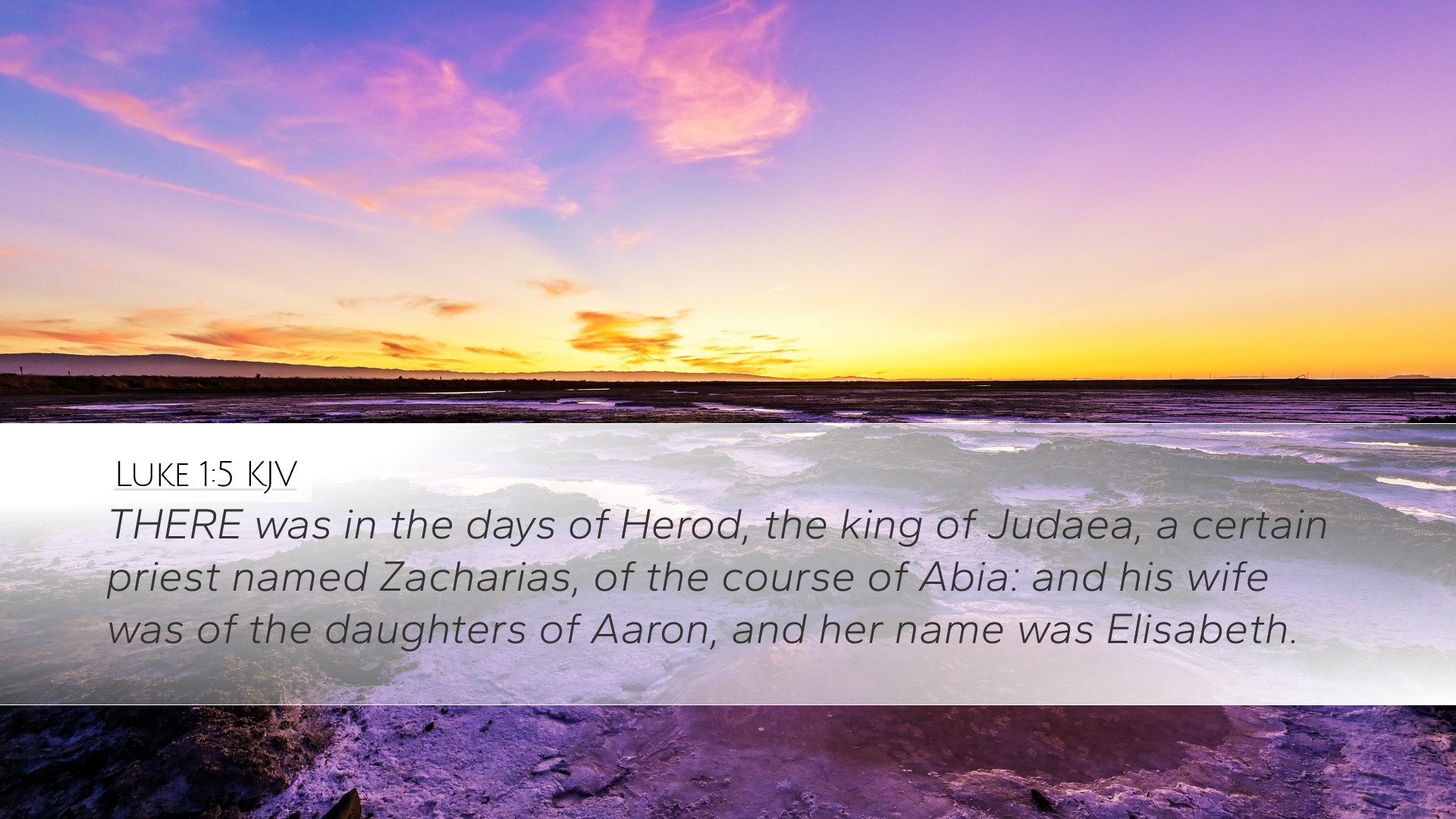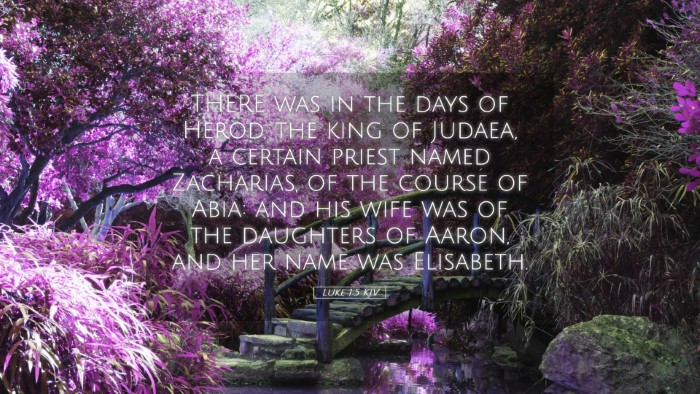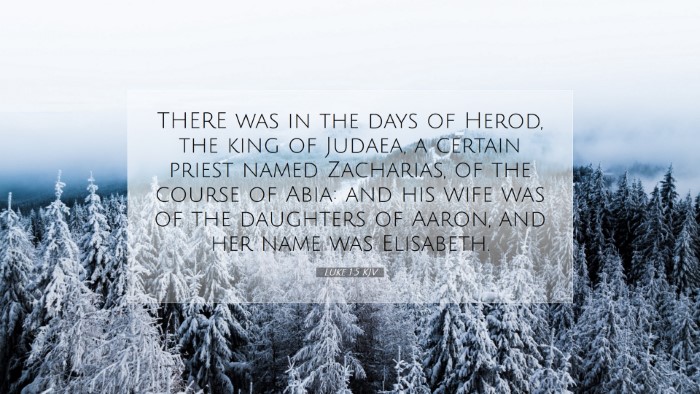Commentary on Luke 1:5
Luke 1:5 states: "There was in the days of Herod, the king of Judea, a certain priest named Zacharias, of the course of Abia: and his wife was of the daughters of Aaron, and her name was Elisabeth." This verse introduces several critical themes and figures that are significant in the unfolding narrative of the Gospel of Luke.
Contextual Analysis
The first part of this verse situates the events within a specific historical context: "in the days of Herod." The mention of Herod, known as Herod the Great, places this account under the auspices of a tumultuous political era, characterized by Roman domination over Judea and significant unrest among the Jewish people.
Herod the Great
Historical Background: Herod the Great ruled from 37 BC to 4 BC and was known for his massive building projects and for his role in the expansion of the Second Temple. However, his reign was also marked by violence, including the execution of his sons and the infamous decree to kill infants in Bethlehem, as recorded later in the Gospel.
The Nature of the Priesthood
Within this politically charged context, we are introduced to the priest Zacharias. According to Matthew Henry, “Zacharias, whose name means ‘Jehovah remembers,’ serves to represent the faithful remnant of Israel.” This opens the narrative with a focus on Jewish religious traditions amidst an oppressive regime.
Zacharias and Elisabeth
Luke identifies Zacharias as a priest of the course of Abia. This specificity is noteworthy as it connects Zacharias to the ancient priestly lineage, rooted in the Levitical order detailed in 1 Chronicles 24:10.
The Significance of Abia
Priestly Courses: The division into courses (or groups) for service among the priests was established to organize worship and service efficiently. Zacharias's lineage is vital, as it signifies fidelity to the traditions of the faith.
Elisabeth's Lineage
Elisabeth, described as the daughter of Aaron, strengthens this priestly connection. Albert Barnes emphasizes that the mention of Elisabeth's lineage not only affirms her legitimacy but also indicates the godly heritage from which John the Baptist would emerge. “This priestly family served God faithfully in times when the nation was experiencing spiritual decline,” states Barnes, suggesting a beacon of hope amid societal despair.
Their Righteousness and Barrenness
The couple is further described as being righteous before God, walking blamelessly in all the commandments and ordinances of the Lord. “This serves to illustrate that divine favor can still rest upon those in difficult circumstances,” remarks Adam Clarke.
Spiritual Integrity
Righteousness: The righteousness of Zacharias and Elisabeth signifies a key theme in Luke’s Gospel, highlighting the importance of faithful living in contrast to the prevailing corruption in leadership. Their uprightness is noted in a time when faith was waning.
Barren but Faithful
The mention of their barrenness adds a layer of depth to their character. As Matthew Henry states, “Their affliction exemplifies a common theme—God often chooses to work through those who endure personal struggles, showing that He can bring life and purpose even from what appears barren.” This theme resonates powerfully in the context of biblical history, where God frequently intervenes in seemingly hopeless situations.
Theological Implications
In summary, Luke 1:5 encompasses the profound themes of faithfulness, hope amidst despair, and the divine intervention that is characteristic of the Gospel narrative. By examining the lives of Zacharias and Elisabeth, one can draw lessons regarding patience in prayer, the value of righteous living, and the profound truth that God prepares His instruments even when they appear inactive or distant from his blessings.
Application for Modern Readers
As pastors and theologians reflect on this verse, they are prompted to consider the implications of righteous living in their own ministries. The example of Zacharias and Elisabeth can serve as a model for enduring faith, demonstrating that God’s plans unfold in His timing.
Concluding Thoughts
Luke has elegantly introduced key characters who will play pivotal roles in the narrative of Christ's coming. Readers are called to reflect on God's faithfulness, the significance of righteous living, and the hope that persists even in the face of personal and communal struggles.


